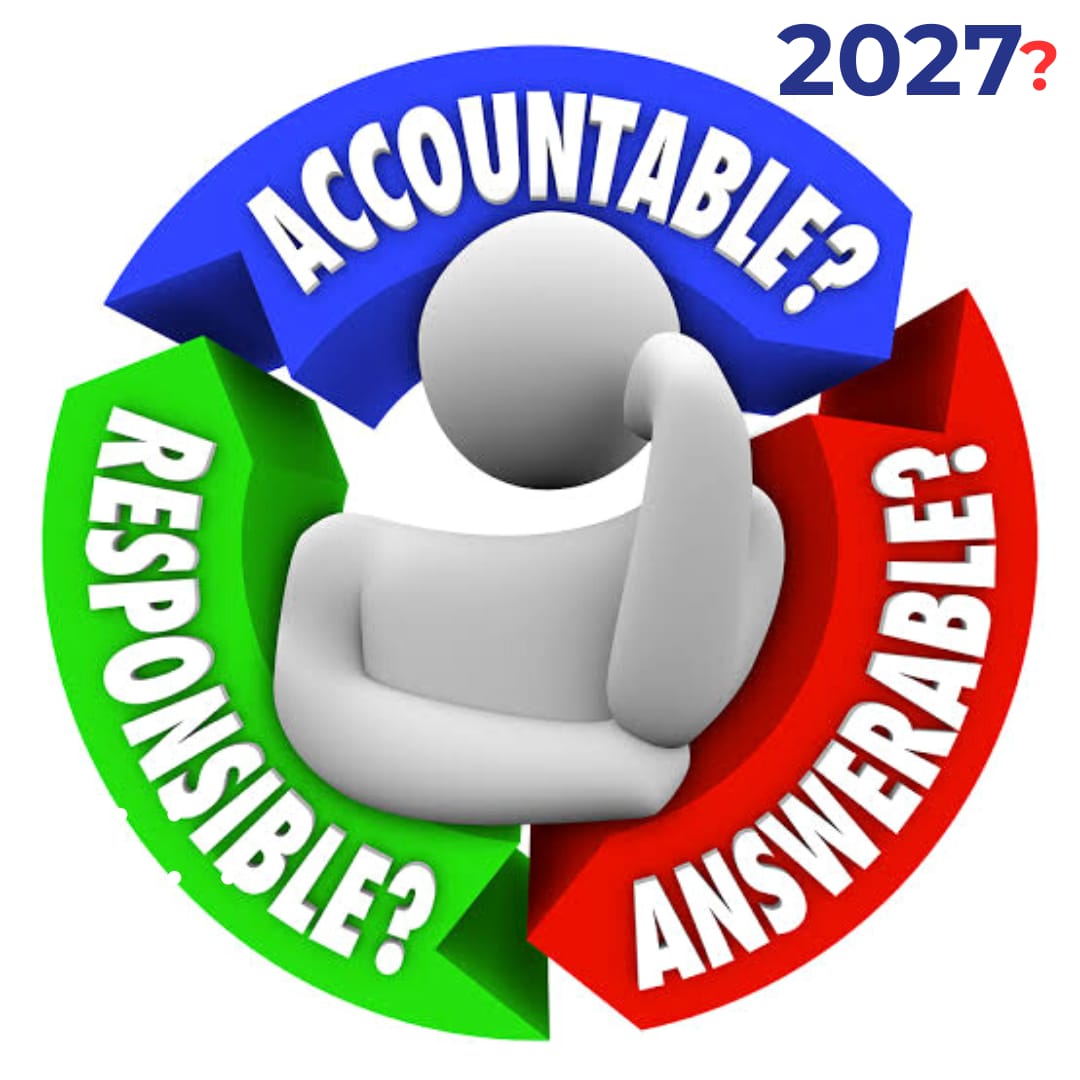In a world that is constantly evolving, accountability remains a crucial aspect of leadership. The aftermath of the 2023 election presents an opportunity for leaders to reflect, learn, and move forward. Rather than dwelling on next events, it is essential to focus on being accountable to the people they are elected to serve.
Accountability forms the foundation of effective leadership. It involves taking responsibility for one’s actions, decisions, and their consequences. By being accountable, leaders demonstrate integrity, transparency, and a commitment to upholding the trust placed in them by their constituents. At this crucial stage, it is important for any elected to embrace accountability which will allow them to acknowledge both successes and shortcomings, fostering an environment of growth and improvement.
“Less than a year of last general election, some elected officers from Oyo state have embarked on necessary journey, noise, religion classification, sacrifices and lots of things that are not in the line of their duties. Some have also chosen to compete with a sitting governor by exchanging pleasantries like a governor on the demise of traditional rulers, important dignatories and major events outside their purview.”
Rather than focus on the thorough discharge of thier duties and ensure accountability which goes beyond individual responsibility; they rather engage in non-issue that add nothing to their constituents or zone. Be accountable as accountability extends by fostering strong connections with the people they elected to serve. By actively engaging with constituents, leaders can understand their needs, concerns, and aspirations. Through open dialogue, leaders can build trust and create an environment where people feel heard and valued.
Religion should not be a basis for classification or division among our people. many frown at it when it comes from supposed leaders. It is essential to uphold the principles of inclusivity and respect for all religious beliefs. By focusing on the common good and working towards unity, elected officers can foster a sense of harmony and understanding among diverse communities. Embracing a secular approach allows for more inclusive governance and promotes social cohesion
Residents of various constituency wants to hear, see and feel the effective work of their representatives not news mentioning without nothing to show for it. While reflection on past elections can be valuable, where elected will be able to see what he loose in his domain and what he gained exwhere, it should not consume our focus entirely. Instead, leaders should use the lessons learned from the 2023 election to inform their actions and decisions moving forward. This connection is vital for effective governance and promoting a sense of unity and shared purpose.
“Embracing accountability means acknowledging mistakes, understanding their root causes, and implementing measures to prevent similar issues in the future. By doing so, leaders can build resilience, adaptability, and ensure a more inclusive and responsive governance system.
Accountability is a key driver in inspiring trust and confidence among the public. When leaders take ownership of their actions and decisions, it sends a powerful message that they are committed to serving the best interests of the people. By being transparent about their intentions, processes, and outcomes, leaders can foster a culture of trust and collaboration, creating a conducive environment for progress and positive change.
Elected officers in Oyo state must remember their primary duty is to serve the people who elected them. Engaging in unnecessary activities, noise, religious classification, and competing with fellow officials detracts from their responsibilities. By staying focused on their duties, avoiding distractions, and embracing accountability, elected officers can effectively serve the people and work towards the betterment of the state. It is essential for elected officials to prioritize the collective well-being of their constituents and foster an environment of unity, collaboration, and progress.
Elected officers should refrain from encroaching on the responsibilities of other officials, including the sitting governor. Engaging in unnecessary competition or attempting to overshadow fellow leaders undermines the collaborative spirit necessary for effective governance. Instead, elected officials should focus on complementing the efforts of their colleagues and working together towards the betterment of the state and its people.
Accountability is the cornerstone of effective leadership, especially in the aftermath of the 2027 election. By being accountable to the people you were elected to serve, leaders can foster strong connections, inspire trust, and drive positive change. Rather than reflecting solely on unnecessary future political position, it is also crucial to focus on learning, growth, and moving forward collectively as those who keep records of account will remind the public when the time comes.
Babalola Sakiru writes from Ibadan.
.

